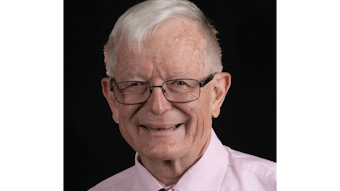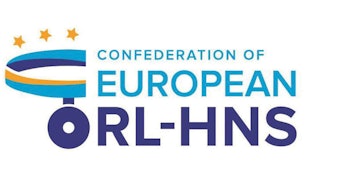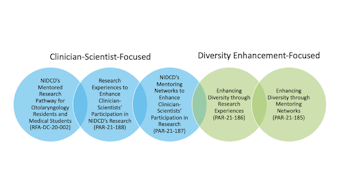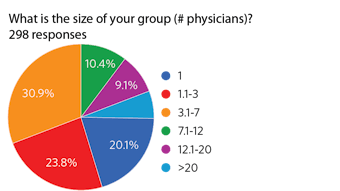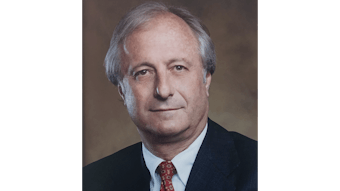What It Means (Meant) to Me to Be a Military Otolaryngologist
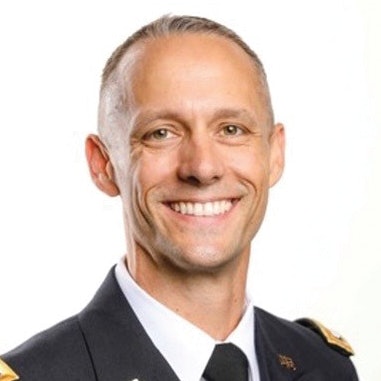 Scott Bevans, MD
Scott Bevans, MD
I joined the Army after 9/11 when the U.S. went to war in Iraq. Despite ideologic differences, we can all agree that war is ugly. The greatest costs of war are the human costs; and often incurred by the least deserving. As military surgeons, we have the opportunity to redeem those injured in conflict. If done well, we can save lives and restore those injured in the line of duty or innocently caught in the crossfire.
Some time ago, I deployed to Iraq as a part of a Head and Neck Trauma Team. I recall meeting some members of the elite units that we supported. They came by the Combat Support Hospital to look into the eyes of the people who would work to save their lives if they were injured. With every mission, the young men and women who joined the military to defend our nation’s freedoms, placed their lives on the line for us. We are their life insurance policy. Our unit’s motto was “Reviresco,” which means “to renew or revive.” Across the world, we strive to practice good medicine in the worst places; to revive our nation’s defenders. Those four and a half months I spent in Baghdad were the epitome of what it means to me to be a military otolaryngologist. Every day since, I have worked to prepare the next generation of head and neck surgeons to be prepared should they be asked to do the same.
Reviresco!
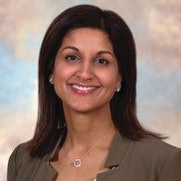 Reena Dhanda Patil, MD
Reena Dhanda Patil, MD
As a chief resident leaving Washington University in St. Louis in 2003, I never dreamed I would become a career VA otolaryngologist. Although I loved my time rotating through the VA during residency, I initially planned to pursue comprehensive ENT in private practice. But fate intervened, and I ended up working at a VA in Florida for my first job, ultimately transferring to my current position as Chief of Otolaryngology at the Cincinnati VA for the last 15 years.
Over the past two decades as an attending, I think often to myself that I am lucky to provide care to such a grateful, kind patient population. Our nation’s veterans have sacrificed a part of their lives to serve our country, and I consider it a privilege to serve them in kind. Although the VA is not always the easiest place to work from a bureaucratic standpoint, I have never felt limited in my ability to provide cutting-edge care for our patients; in some ways, working for a single-payer system allows me the freedom to do what is right for my patient and not worry about day-to-day details, such as those my colleagues in the private sector encounter. In addition, I am fortunate to work with our residency at the University of Cincinnati as a faculty member and enjoy the energy and motivation of the three residents rotating with me at any given time. With the opportunity to pursue my research interests as well as to educate and provide outstanding care, I am always glad to be at work and look forward to more fruitful days in my clinic and OR as a VA doc!
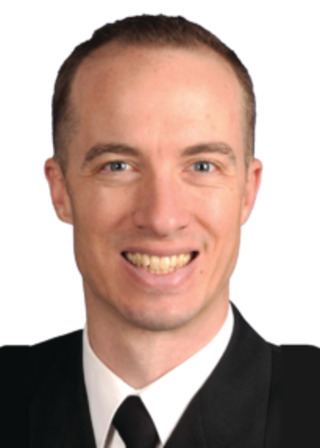 Philip A. Gaudreau, MD Philip A. Gaudreau, MD Commander, Medical Corps, U.S. Navy, Navy Medicine Readiness and Training Command, San Diego, California
Philip A. Gaudreau, MD Philip A. Gaudreau, MD Commander, Medical Corps, U.S. Navy, Navy Medicine Readiness and Training Command, San Diego, California
The views expressed in this article are those of the author and do not necessarily reflect the official policy or position of the Department of the Navy, Department of Defense, nor the U.S. Government.
I am a military Service member or employee of the U.S. Government. This work was prepared as part of my official duties. Title 17, U.S.C., §105 provides that copyright protection under this title is not available for any work of the U.S. Government. Title 17, U.S.C., §101 defines a U.S. Government work as a work prepared by a military Service member or employee of the U.S. Government as part of that person’s official duties
Military otolaryngology provides an opportunity to practice otolaryngology in diverse locations around the world supporting our active-duty members, their families, and the retirees that have given their careers to military service. I have been exceptionally fortunate to have the opportunity to interact with patients and otolaryngologists from around the world as a result of my naval service. This is in addition to the incredibly rewarding work of treating our service members and their families while at home. As a pediatric otolaryngologist, I am primarily responsible for taking care of the children of our service members. The ability to provide this care and help reduce the burden to our service members, often as they prepare to deploy, are already deployed, or have just returned from deployment, provides a significant degree of personal satisfaction.
Beyond the day-to-day work of caring for patients, being a military otolaryngologist means being a part of a community. The sense of shared sacrifice associated with a career of deployments, shared training locations, and the challenges associated with a career in federal service creates a bond with our fellow military otolaryngologists, the other medical specialists with whom we have the pleasure of working, and our patients. There are few things that generate stronger bonds than sharing a small stateroom on a hospital ship or deploying to a war zone with your colleagues.
As a residency program director, military otolaryngology is also a constant sense of looking to the future. While my focus is certainly how to prepare my current residents to be safe and competent otolaryngologists, I am also looking at the best way to position and prepare our specialty for any future conflict in which we may find ourselves engaged. Enhancing the ability of military otolaryngologists across the range of subspecialties to respond to traumatic injuries that may result from future conflicts is critical to the survivability of our active-duty members, and to ensuring that our specialty remains relevant to higher level military medical planners. Thinking about the potential for future conflict also brings with it a new appreciation for and focus on geopolitical events around the world. As the prospect of global and regional conflicts seem commonplace for the 21st century, the question of if, and how, the U.S. military may be asked to get involved, and what role an otolaryngologist may be asked to play, is always at the back of my mind. This is also true with regards to humanitarian assistance. I have been fortunate enough to spend some time on the U.S. Naval Ship Mercy, one of two hospital ships in the Navy Fleet, and be involved with the Pacific Partnership mission. This mission is an annual multi-national mission across the Pacific focused on disaster preparedness and response. Working with our international partners to improve our interoperability and the ability to respond to natural disasters is taking on new levels of importance as climate change increases the exposure of these nations to more and more potentially catastrophic weather events.
Being a military otolaryngologist is a fascinating and rewarding career. I have had incredible opportunities to work with some of the most incredible people in some truly incredible places. I have had the opportunity to train the future of our specialty and care for patients who share a belief in shared sacrifice to improve our ever-changing world. While it certainly comes with its own challenges, I am grateful to the opportunities it has provided to me and my family and the unique career I have been able to build.


